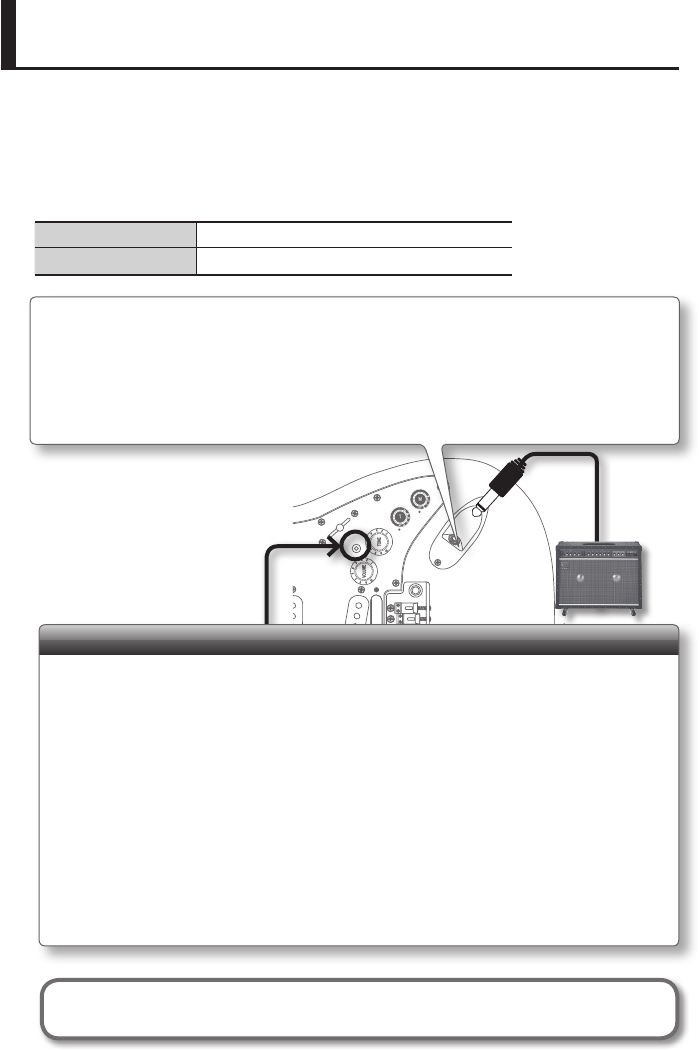
5
Turning On the Power
To prevent malfunction and equipment failure, always turn down the volume, and turn o all the
units before making any connections.
Once everything is properly connected, be sure to follow the procedure below to turn on their
power. If you turn on equipment in the wrong order, you risk causing malfunction or equipment
failure.
When powering up Turn on the power to your amp last.
When powering down Turn o the power to your amp rst.
* ALWAYS UNPLUG YOUR GUITAR WHEN NOT PLAYING FOR BEST BATTERY LIFE.
The power will turn on when a plug is inserted in the guitar jack.
* Before turning the unit on/o, always be sure to turn the volume down. Even with the volume turned
down, you might hear some sound when switching the unit on/o. However, this is normal and does not
indicate a malfunction.
* This unit is equipped with a protection circuit. A brief interval (a few seconds) after power up is required
before the unit will operate normally.
Power Indicator
This light is blue when the power is on, and gradually dims as the battery power decreases. The indicator
begins to ash when the battery voltage falls below a set level. Should the voltage drop even further, the
light will go o and use of all modeling modes will cease.
Should this happen, the N mode will still work, so you can continue to play your Strat without the
modeling and tuning features. If you allow the batteries to remain in the unit after depletion, you can
negatively impact the future performance of the alkaline batteries. They can also become a source of
noise.
* The time it takes for all functions to stop after the power indicator has begun ashing varies depending
on the battery type and temperature.
* Replace the batteries as soon as they are drained and the power indicator is no longer lit.
* Expected battery life under continuous use:
Rechargeable Ni-MH batteries: Approx. 9 hours
Alkaline batteries: Approx. 6 hours
These gures will vary depending on the specications of the batteries and the actual conditions of
use.


















